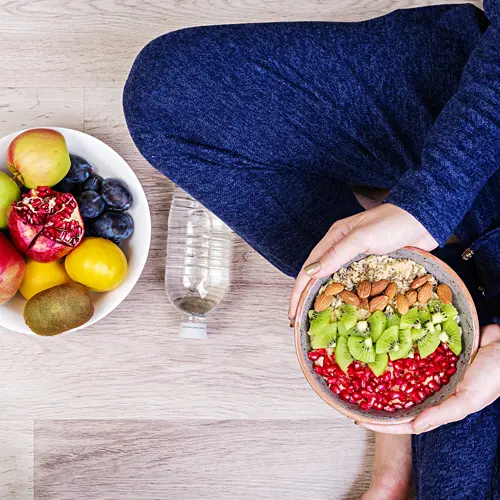Table of Contents
We know one thing for sure, the post-surgery period is as important as the surgery itself. If nutrition is the main factor of healing after gastric sleeve surgery with scheduled long-term exercises, protein is the master key to opening successful recovery rooms for the patient.
Proteins, found in every cell are the basic blocks of the body and are made of amino acids. Proteins help patients to heal fast, after any type of weight loss operation. It helps you to preserve more muscles when you start burning fat and losing weight after gastric sleeve surgery.
In this essay, we will mention top protein sources for post-gastric sleeve surgery nutrition. We will also talk about some high-quality protein sources for optimal healing and plant-based protein choices for your diet.
The Importance of Protein in Post-Surgery Nutrition
Setting nutrition goals based on protein is the highlight of your recovery after the gastric sleeve surgery. If you don’t have enough protein, you may face some hitches regarding your health which cause some difficulties in daily life. Some other important effects of protein are to increase satiety (the feeling of fullness) and keep blood sugars stable.
Your dietary protein intake should be 60 grams during the first three months after the gastric sleeve surgery. Between three and six months, the amount should be 60-80 grams. It is best to split the protein amount during the day. To reach that goal, you can temporarily take protein supplements as well.
High-Quality Protein Sources for Optimal Healing
Meat, fish, seafood, eggs, poultry, milk, yogurt, and low-fat cheese are known as the main high-quality protein sources. Beans, pulses, and soy milk are also among the protein sources that you can add to your protein-based daily diet. Some fruits and vegetables contain protein as well. Speaking of a protein diet and setting nutrition goals, do not exceed the daily limits. Taking too much protein, more than your body needs may be harmful to your kidneys. If you have a health problem regarding your kidneys beforehand, consult your dietician about it. They will give you the right diet list considering your health past.
Lean Protein Options for Weight Loss Success
As for other weight loss surgeries, a high-protein, low-fat diet is your best supporter during your recovery after the gastric sleeve surgery. You should consume both animal sources proteins and vegetable sources proteins. Beans, egg whites, and white flesh fish can be an example of balanced nutrition. Easily accessible low-fat milk and plain yogurt are great sources of protein. Some other lean protein options can be lined up as follows:
- Peas and lentils
- Low-fat cottage cheese
- Tofu
- Lean beef
- Powdered peanut butter
- Pork loin
- Frozen shrimp
Plant-Based Protein Choices for a Balanced Diet
If you are vegan or vegetarian, there are plenty of plant-based protein choices. Do not worry about the common idea that vegetarians and vegans may have difficulties recovering after a surgery. A plant-based protein diet is also effective during recovery. If you plan your meatless diet well, you can have all the necessary proteins. Here are some plant-based protein sources your body can utilize:
- Soy milk
- Wild rice
- Chia seeds
- Nuts
- Green peas
- Lentils
Setting nutrition goals with a balanced and well-planned vegan diet you have many benefits for your heart and blood pressure health as well.
Protein Shakes and Supplements for Convenient Intake
People consume protein shakes for different goals: after an injury, to gain muscles, or to burn fat fast. Why do they take protein shakes although there is enough protein in animal-based or plant-based sources? The answer is simple, protein shakes and supplements are dietary, easy to access, and consume. They can be found in different forms; capsules, liquids, and powders.
Dietary means they contain vitamins, minerals, amino acids, and herbs. They can be helpful for us to recover after gastric sleeve surgery as they contain these necessary components. Consult your surgeon on how to combine protein shakes and supplements with your meat-based and plant-based diet for real achievement.
Tips for Incorporating Protein into Every Meal
Experts say, “eat your protein first at meals” This is how you feel full and keep your blood sugar and hormone levels from rising too high. Eat cheese as a snack. 28 grams of cheese contains 7 grams of protein and it is rich in calcium too. Breakfast is important and eggs for breakfast are even more important as a great source of protein. Alternatively have protein shakes sometimes for breakfast.
For lunch and dinner eat leaner cuts of meat and increase portion sizes. That’s a simple way to intake a greater amount of daily protein. Canned fish, grains, and plain yogurt are among other alternatives for a protein-based diet.
Sources
https://www.royalberkshire.nhs.uk/media/5ikh0v1o/after-bariatric-surgery-protein-intake_may21.pdf
https://www.healthline.com/nutrition/protein-for-vegans-vegetarians#benefits-and-risks
https://www.healthline.com/nutrition/lean-protein-foods
https://www.healthline.com/nutrition/do-protein-shakes-work
https://www.healthline.com/nutrition/14-ways-to-increase-protein-intake#TOC_TITLE_HDR_8




















